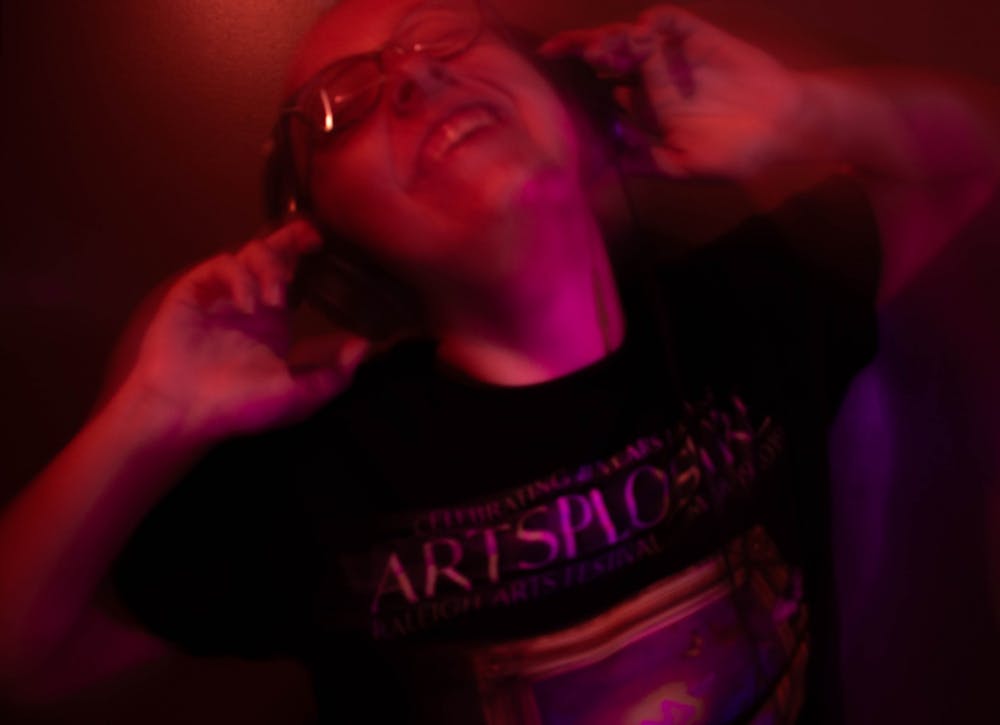Beyond the message of the song, Tribble appreciates the artist’s use of her platform to raise awareness and provoke change.
“A lot of times, when Black people try to voice their opinions about situations, people don't necessarily listen to us unless we're using whatever platform they were watching us on before,” Tribble said.
“The Bigger Picture” by Lil Baby
Hip hop fans, like Marsalis Anderson, a first-year studying media and journalism, were surprised to see rapper Lil Baby talk about police brutality and racism in his music.
“The fact that it’s from Lil Baby was the first thing that stood out to me because he usually does not make music like that,” Anderson said. “For him to do that was a big step for me.”
He appreciates artists like Lil Baby who stepped out of their boxes and made more modern music because he believes the movement has evolved with his generation.
“It’s a song that encapsulates our generation’s dealings with social issues and goes against the norm of what hip hop and rap is seen as by many people in society today,” he said.
“Black Parade” by Beyoncé
Beyoncé released “Black Parade” on Juneteenth, a holiday commemorating the ending of slavery in the United States. Uzokwe believes the celebratory nature of the holiday was captured in the song as it paid homage to the beauty of the Black experience.
“I was definitely excited about Black Parade,” she said. “For me, it was another contribution of that sort of happiness amidst all of this chaos, where it’s like Black joy being a type of rebellion.”
The song features afro-beats and instrumentation that is unique to African and Black American music such as horns, drums and vocal harmonies. For Uzokwe, this instrumentation fused the entire African diaspora together.
“You take Black American music and highlife music in Nigeria; the use of horns is so popular,” she said. “Then the song ‘Black Parade,’ the fact that she had horns, it’s just like that crossover.”
To get the day's news and headlines in your inbox each morning, sign up for our email newsletters.
“Sue Me” by Wale
Another artist who spotlighted Black resilience through his music was Wale. He released “Sue Me” in 2019, but the song didn’t gain traction until this year when the music video was released.
In the video, the artists reversed the roles of race, making a white man live through discrimination as a minority, while Black people were the majority. Terrique Morris, a junior studying psychology, believes this song is powerful but thinks the creativity in the video made the message clear.
“I feel like if some of my white friends were to see it, it would also open their eyes as well.”
Morris believes this song addresses the true meaning of the movement.
“He’s basically rooting for everybody who's Black, and he continually says that in the song,” he said. “That’s what the whole Black Lives Matter movement is about.”
Keeping music alive
Tribble thinks music will continue to be a method of protest for the Black community because it is what the community has always relied on.
“It's kind of innate for us to connect with music and use that connection to express ourselves,” he said.
To Uzokwe, the use of music to obtain racial justice will continue to be relevant because of its ability to motivate and empower.
"When you think of what music does, it drives out so much emotion,” she said. “When you're able to resonate with lyrics, I think it can help movements and keeping the movement alive and keeping people who attend demonstrations happy, excited, and empowered.”
arts@dailytarheel.com
@charity_cohen




